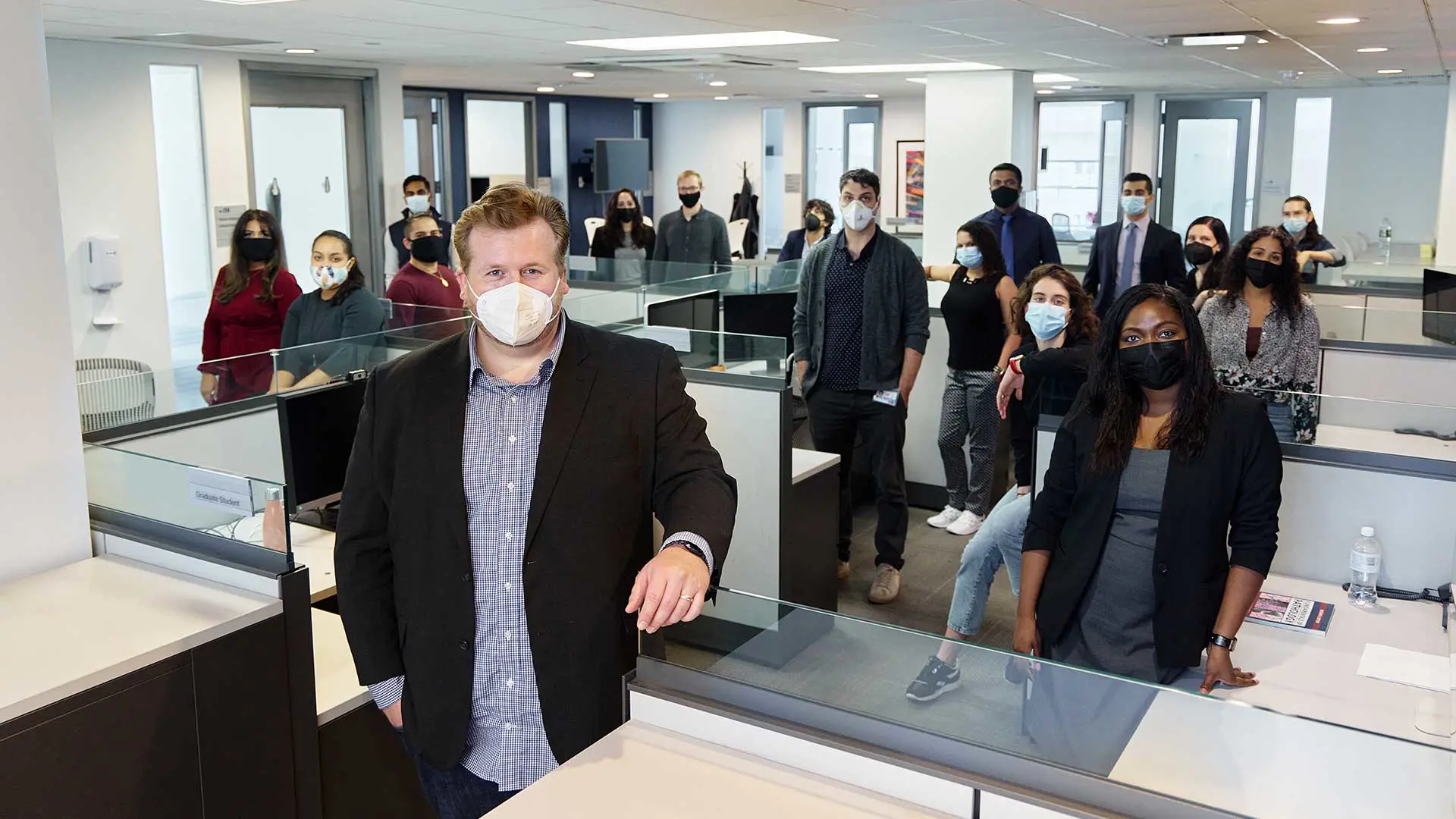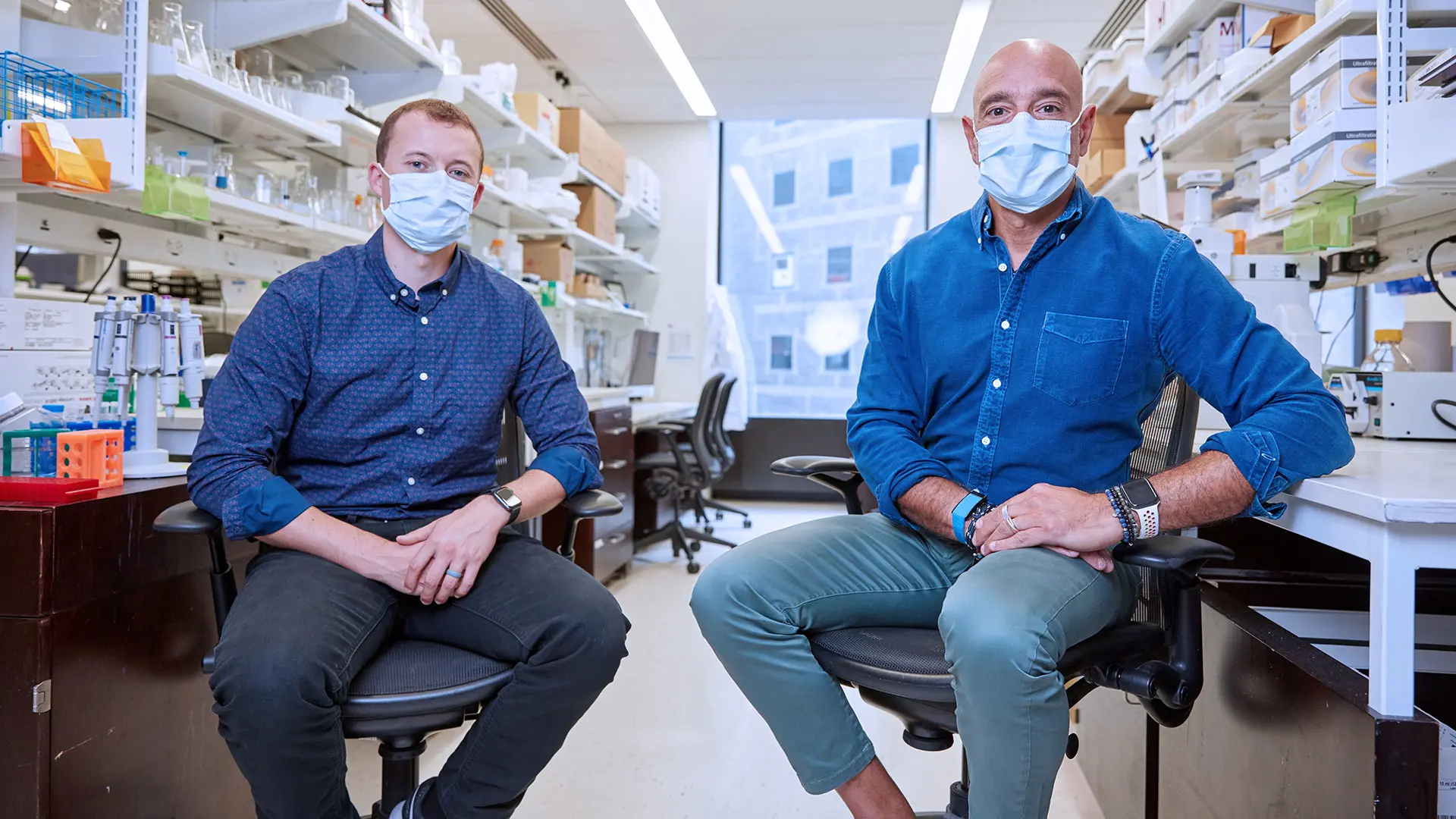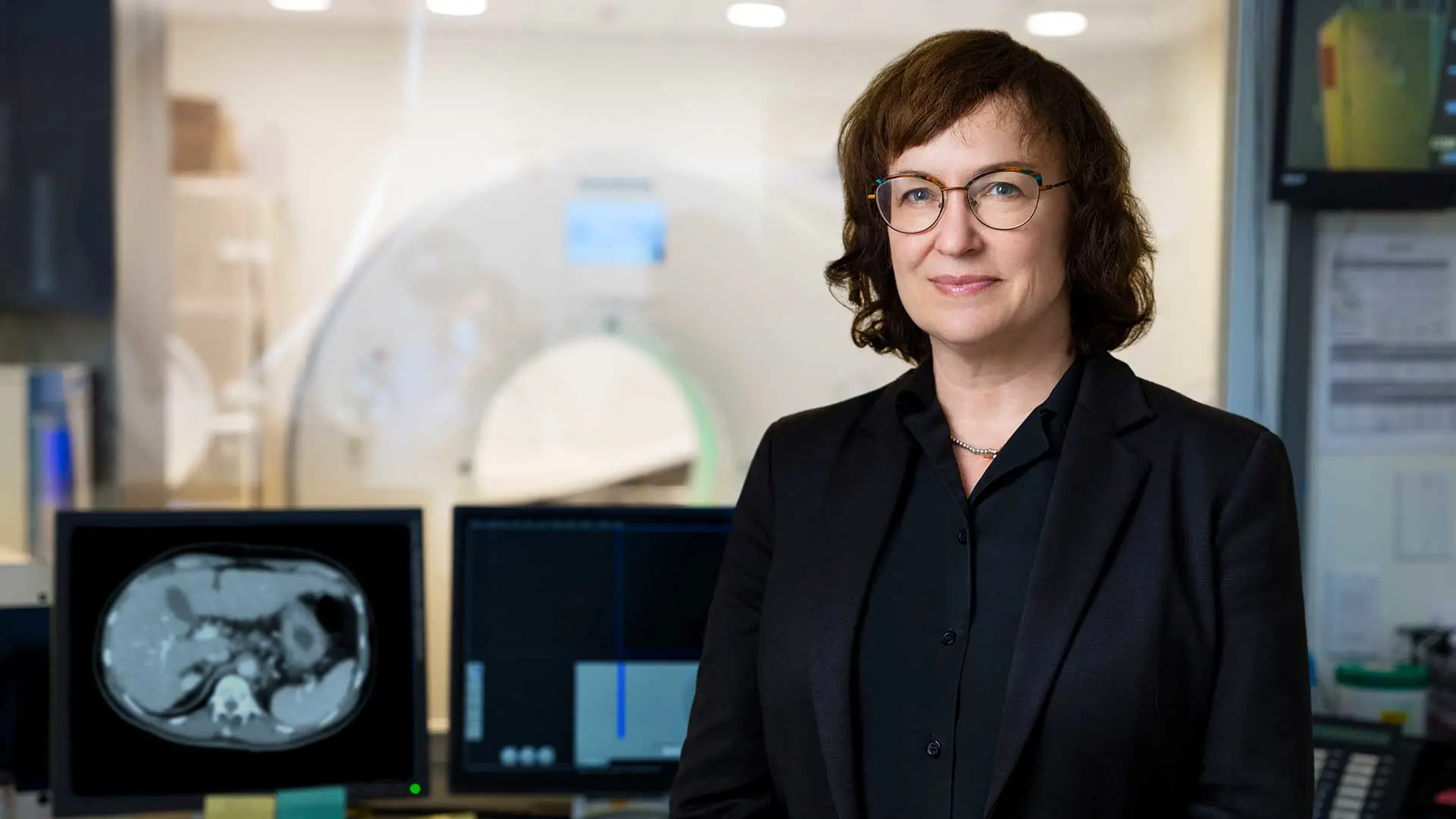This new multidisciplinary training area in the Biomedical Sciences PhD program offers extraordinary opportunities for students and faculty to develop and implement new tools for faster, less expensive, and more effective drug discovery using patient-driven biology and a wide range of biological and simulation data—all of which can be collected at unprecedented scales across numerous departments and institutes within the Mount Sinai Health System, New York City’s largest.
Those entities include the Hasso Plattner Institute for Digital Health at Mount Sinai (HPI-MS), and the BioMedical Engineering and Imaging Institute (BMEII)—both closely aligned with the AIET training area.
The HPI-MS, a partnership established in 2019 between Mount Sinai and the Hasso Plattner Institute for Digital Engineering in Potsdam, Germany, has a significant mission to unify all of Mount Sinai’s efforts to devise AI and machine-learning tools, with a goal to integrate the vast amounts of disparate clinical data generated by the Mount Sinai Health System into a one-stop portal for researchers. A multitude of faculty and trainees on both campuses will be engaged in this research.

Thomas J. Fuchs, Dr.sc., newly recruited to serve as Mount Sinai Chair in Artificial Intelligence and Human Health
Thomas J. Fuchs, Dr.sc, an acclaimed scientist in the field of computational pathology, was newly recruited to Mount Sinai to serve as Mount Sinai Chair in Artificial Intelligence and Human Health at the Icahn School of Medicine at Mount Sinai, and is Co-Director of HPI-MS.
Dr. Fuchs is also the Founder and Chief Scientist of Paige.AI, which in September 2021, received the first-ever U.S. Food and Drug Administration authorization to market an artificial intelligence-based software to help identify cancer on prostate biopsies. The software, known as Paige Prostate, is now available for diagnostic use in the United States.
“Not only will this new generation of professionals need foundational education in the use of information systems,” says Dr. Fuchs, “they will need to learn how to develop and interpret predictive diagnostic and therapeutic models using a variety of machine learning tools based on statistics and probability theory, drawing upon quantitative fields such as computer science, mathematics, theoretical physics, theoretical and computational chemistry, and digital engineering.”
AIET will also work in close conjunction with BMEII, led by Founding Director Zahi A. Fayad, PhD. BMEII will serve as a catalyst for creating novel medical inventions in the fields of imaging, nanomedicine, artificial intelligence, and computer vision technologies, such as virtual reality, augmented reality, and extended reality.
“As a renowned imaging and nanomedicine institute, BMEII will be a hub of innovation in the AIET program, leveraging AI, mHealth, sensors, and other technologies to enable novel medical inventions and breakthroughs in preclinical and clinical research,” says Dr. Fayad.

Zahi A. Fayad, PhD, Founding Director of the BioMedical and Engineering Imaging Institute, right, with Alan C. Seifert, PhD, Co-Director of the Artificial Intelligence and Emerging Technologies in Medicine multidisciplinary training area.
“Through access to first-class coursework in various aspects of biomedical sciences, complemented by training in AI/machine learning, computer systems, next generation medical technologies, virtual/augmented reality simulation technologies, and large biological repositories, the Graduate School of Biomedical Sciences will train a specialized workforce with deep expertise in AI and other emerging technologies to support the research activities of our institutes and centers,” says Marta Filizola, PhD, Dean of the Graduate School of Biomedical Sciences and Sharon and Frederick Klingenstein/Nathan Kase, MD Professor of Pharmacological Sciences, and Professor of Neuroscience.
The educational and career objectives of the AIET concentration include developing:
a robust understanding of AI/machine learning tools to assess the need, impact, validity, performance, and applicability of AI algorithms in biomedical sciences and clinical care;
a variety of next generation medical technologies (medical devices, sensors, and robotics) including surgical/interventional devices for improved patient safety and efficacy and portable diagnostic imaging devices;
methods and algorithms for computer-based analysis of medical images and for the integration of complex biomedical data; and
AI and deep learning algorithms to integrate large-scale multi-omics data in diseases for discovery of novel disease mechanisms and targets and for the development of novel therapeutics for major human diseases.
The AIET co-directors bring extraordinary expertise to the program.
Hayit Greenspan, PhD, and Alan C. Seifert, PhD, are the newly appointed AIET co-directors.
Dr. Greenspan is the Director of Artificial Intelligence in Imaging at the BMEII, and holds academic appointments as Professor of Radiology at Icahn Mount Sinai and Professor of Biomedical Engineering at Tel Aviv University. Dr. Greenspan develops new deep learning (DL) based methodologies applied to varying tasks in the medical image analysis space, with a focus on technology development, along with applications to real clinical needs. Tasks include MRI brain image analysis, CT liver analysis, and X-ray pathology detection.
Recently, Dr. Greenspan was focused on developing DL solutions in X-ray and CT to support COVID-19 analysis, from detection to characterization and treatment support.

Hayit Greenspan, PhD, is Co-Director of the Artificial Intelligence and Emerging Technologies in Medicine multidisciplinary training area
“Artificial intelligence allows us to bridge the gap between research and the clinic, providing a common language to use to solve problems across multiple domains,” says Dr. Greenspan. “Our academic coursework and research programs, combined with mentorship and entrepreneurship mechanisms, will provide students with ample opportunities to create and apply new technologies to address persistent problems in clinical and diagnostic care.”
The AIET training area: a rich, collaborative learning environment
Dr. Seifert, a biomedical engineer with a background in both imaging physics and the medical sciences, is Assistant Professor of Radiology within the Biomedical Engineering and Imaging Institute. His research largely focuses on the technical development and translation of functional, diffusion, high-resolution anatomical, and quantitative myelin density magnetic resonance imaging methods in the human brain stem and spinal cord.
“As our fundamental understanding of physiology and disease continues to become more nuanced and detailed, the combination of advanced engineering with biomedical science will become more necessary for breakthroughs in clinical care and biomedical research,” says Dr. Seifert. “The AIET training area will provide a rich, collaborative learning environment for merging engineering and medicine to create impactful solutions to clinical needs.”
Training opportunities will be additionally strengthened by a number of steady and strategic investments by Mount Sinai:
In fall 2021, Mount Sinai established a Department of Artificial Intelligence and Human Health—the first such department to be embedded in a U.S. medical school—which
Dr. Fuchs will lead.
Mount Sinai also established the Center for Artificial Intelligence and Human Health in 2019, with a special focus on the three areas of genomic health, precision imaging, and combining genomic information with patient health data to create models of disease progression.
Dr. Fuchs and members of his team elaborate on Mount Sinai's efforts in this video.
Learn more about Mount Sinai's Department of Artificial Intelligence and Human Health in this video.